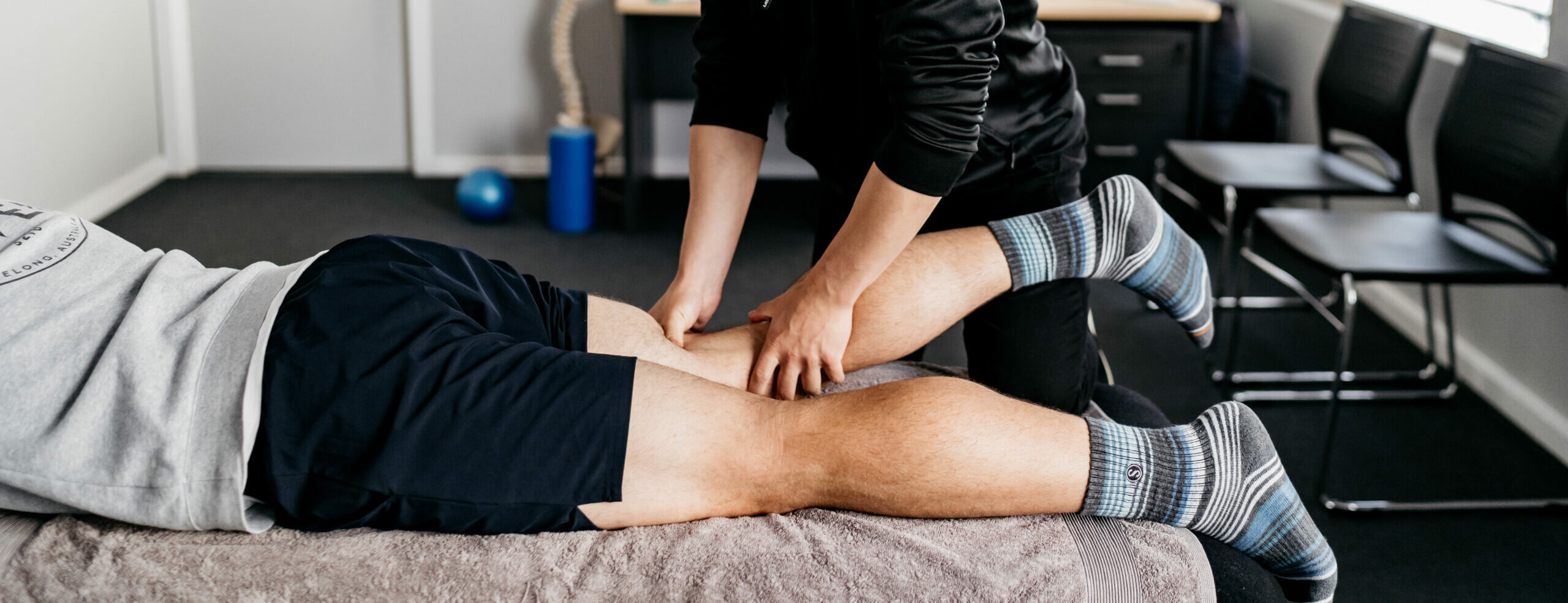
Want to learn more about running injuries?
Lachie Cooper, Physiotherapist, has answered some common questions.
Check them out below!
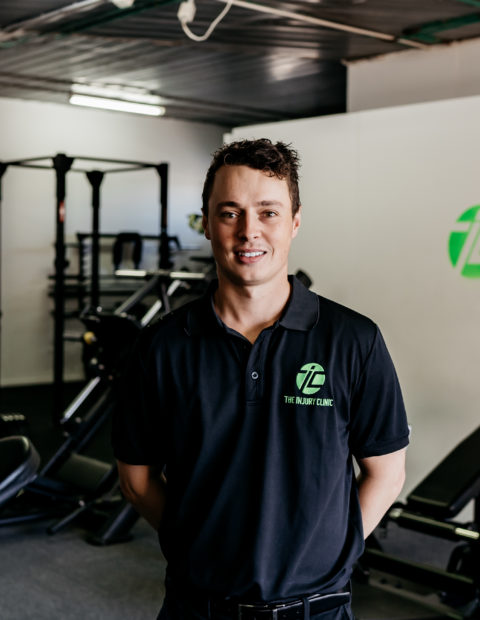


What’s a good protocol for managing high hamstring tendinopathy when eccentric loading like RDL’s aggravate?
The proximal hamstring may be provoked with positions of increased hip flexion, likely due to the hamstring tendon compressing against its attachment site at the pelvis. Furthermore, eccentric exercises generally place a greater strain on the muscle-tendon complex, and clinically we find they may be more provocative. There are a few alternative options available. Firstly, we may consider using eccentric exercises through the knee whilst keeping the pelvis still (e.g. prone hamstring curl, hamstring sliders). We could restrict the range of motion through a hip dominant hamstring exercise to reduce the amount of hip flexion occurring (e.g. partial range RDL or hip thrust). Lastly, we may wish to simply load through hip extension in an isometric exercise (e.g. chinese plank).
Any tips for run programming?
Firstly, having a good running coach on board can help you to avoid the many mistakes that many runners make!
If you are looking to train for an event, it is best to start programming your running close to the event date and then work backwards. This allows you to ensure you are building sufficiently throughout a program to avoid any dramatic spikes in training load.
If you are new to running, it would be best to give yourself more time than just the 12-16 weeks that most training programs provide for half marathon or full marathon distances. This may allow you to have a baseline of fitness that will tolerate a training block.
Ensure to keep your easy days easy. We see too many runners attempt to run too many runs quickly and wind up with an injury or being too fatigued for their tempo or hill sessions. A general rule of thumb for endurance running is to keep 80% of your weekly training ‘easy’. I’ve seen many clients improve their performance and symptoms of running related injuries by simply reducing the pace of several runs per week.
Any advice for managing my run load with medial tibial stress syndrome?
Firstly, medial tibial stress syndrome can take quite a while to build up any decent running volume. As such, we often need to progress very slowly with running. I frequently find that in chronic cases, patients may take 9-12 months to build up running load to a volume they are happy with. Evidently the rate in which we can build up running load is highly variable between individuals.
It is vital to monitor symptoms in response to running. I aim to keep symptoms under a 2/10 pain (where 0 is no pain at all, and 10 is the worst pain imaginable). The cases I see becoming chronic are where patients push through pain and attempt to build load in the presence of fairly reasonable symptoms.
I aim to only change 1 training variable at a time. In the early stages, I often attempt to maintain frequency and duration of running where possible, and remove or decrease tempo sessions in the early stages. If we are adding tempo or hill work back into a program, the overall volume and frequency of training generally stays the same.
Runners often get little niggles. At what point do you suggest persevering vs seeing a physio?
Firstly, I would advise getting a niggle checked out by a physio if in doubt!
Beyond that, there are a few key signs that something should be assessed in more depth. If you have one or more of these, you should make an appointment with a physiotherapist.
- If the symptoms have occurred for longer than 2 days
- The pain is more than a 2/10
- There is pain at rest or at night
- There is swelling, warmth or redness
- The symptoms are affecting your gait
- You are looking to build run load in the near future
- You reproduce discomfort or pain with your regular activities of daily living
- Your symptoms occur with relatively small amounts of running compared to what you can tolerate
How do I know if it is safe to continue running with pain or injury?
This will depend significantly on the tissue or injury presentation. There is no one size fits all approach to this question.
There are some conditions where it is safe to run with some pain or discomfort, such as achilles tendinopathy, provided that we are managing run load and monitoring symptoms. In fact, with many running related injuries, it is possible to maintain some run load whilst allowing the tissue to settle.
On the other side of the coin, we should cease running if we are eliciting pain due to more sinister conditions such as a bone stress injury.
As such, when in doubt, get it checked out by your physio!
Schedule your next visit
If you’re interested in booking an appointment with one of our team members, contact our clinic today and we’ll be happy to find time for a consultation.
Schedule ConsultExplore our physiotherapy services
Musculoskeletal
Physiotherapy
At The Injury Clinic Physiotherapy, we work closely with our clients to get them back doing the things they love as soon as possible.
Sports
Physiotherapy
The Injury Clinic Physiotherapy works with recreational to elite athletes to keep them injury free and achieving their goals.
Dry
Needling
All physiotherapists at The Injury Clinic Physiotherapy are qualified and experienced in dry needling as a treatment technique.
Running Related Injuries
Physiotherapists at The Injury Clinic Physiotherapy have a special interest in the diagnosis and management of running-related injuries.
Women's Health
Physiotherapy
We have physiotherapists with a special interest in Women's Health, including pre and post partum presentations. Let us work with you to stay fit, active and healthy.
Pre & Post-Operative
Physiotherapy
Physiotherapists at The Injury Clinic Physiotherapy work closely with surgeons to ensure best outcomes post surgery.
Injury Q&A
Our clinicians have been answering all your questions!
Running Analysis
The goal of a running analysis is to identify aspects of your technique that may be contributing to injury or impacting on efficiency.
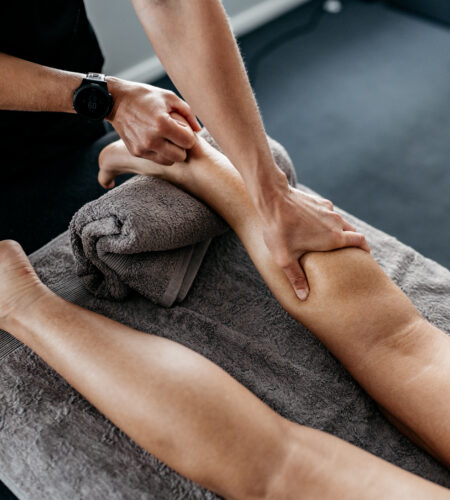

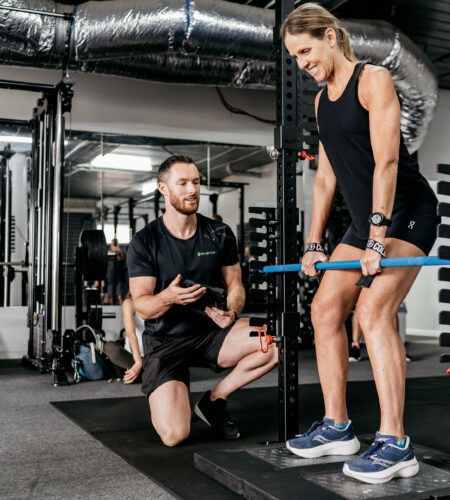

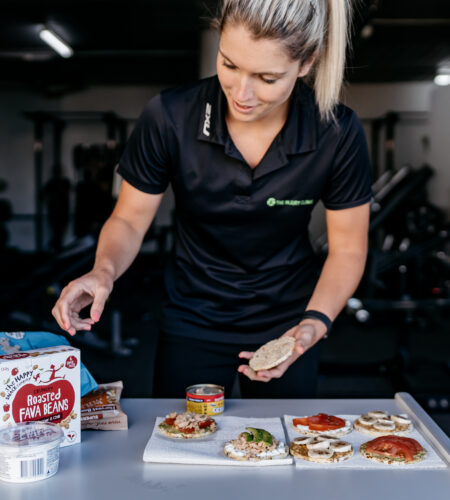

Schedule your next visit
If you’re interested in booking an appointment with one of our team members, contact our clinic today and we’ll be happy to find time for a consultation.
Schedule Consult